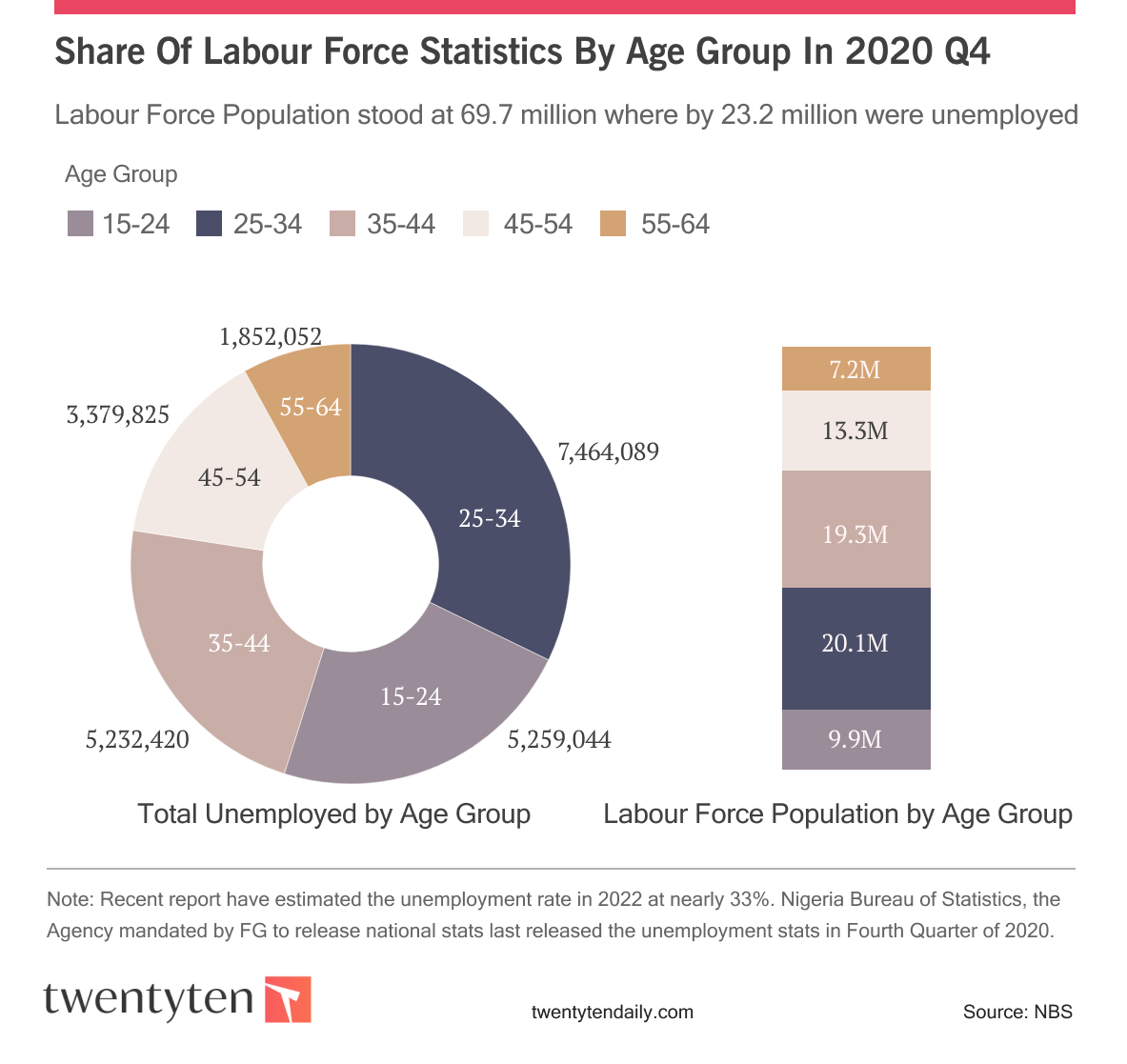At the beginning of the year, Statista released a report forecasting the unemployment rate in Nigeria for 2022. The report estimated the unemployment rate in the year at nearly 33%, a 0.5 increase from the previous year at 32.5%.
This data has been recycled in other reports on unemployment in Nigeria even though the recent massive migration of young talents to well-developed countries to seek gainful employment points to the escalating unemployment crisis in the country.
Since 2014, Nigeria’s working-age population’s unemployment rate has spiked drastically, leading to a massive efflux of skilled workers migrants from Nigeria over the last few years.

A report on the website of the UK medical council in July 2020, showed that the number of Nigerian doctors working in the UK had risen to 7,875 in less than a week and had surpassed a thousand by the beginning of the following month.
This relocation trend points to the focus of the World Bank’s argument on the actual rate of unemployment in Nigeria.
Using data gathered from relocation trends and collated statistical data, the Washington-based organization revealed that the number of Nigerians who are in the working-age population but are not active in the labour force had gone up from 29 to 52 million between 2014 and 2021, pointing to the fact that unemployment rates are higher than is presented.
“Increasingly, educated Nigerians are struggling to find employment opportunities in the country. While unemployment rates have increased substantially for Nigerians across all education levels over the years, it has become progressively challenging for educated Nigerians to find employment opportunities,” the report stated.
According to the report, women are the most hit and vulnerable in the country’s labour market. In Nigeria, 46.4% of the male population are fully employed, while about 40.6% of women are fully employed.
The World Bank also noted that Nigeria’s unemployment crisis is creating migratory pressure on the economy. It explained that a combination of rising unemployment, booming demographics, and unfulfilled aspirations is increasing the pressure on young Nigerians to migrate in search of gainful employment overseas.

